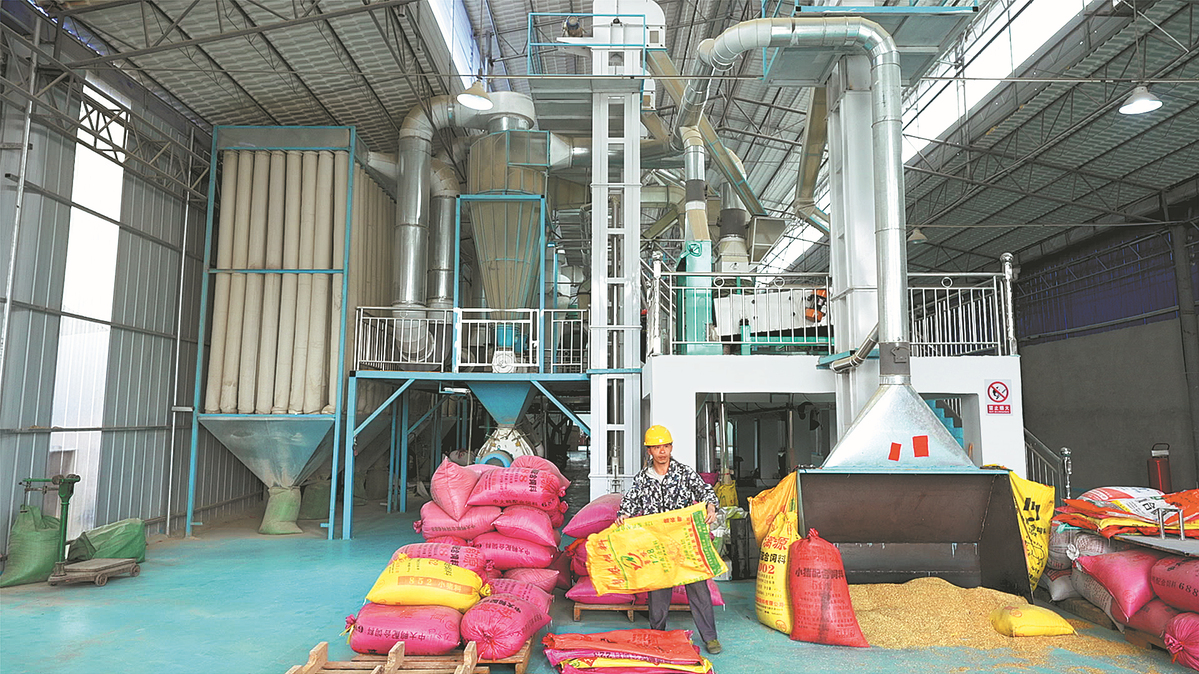Rural vitalization programs provide growth, better lives


Helping industry grow
Ma'an, a village near Dazhao, is a good example of cooperation between companies, cooperatives and residents.
Farmers used to work their own plots, but they could only grow a small amount of rice, and it was difficult to sell the produce. Now, more than 820 farmers are leasing their land to the Yuquan Rice Planting Cooperative, meaning that they no longer need to work their own land and can find jobs close to home.
The land has been combined into a 1,000-hectare modern planting base for Zhongdu Liji Rice, a company that has an automated line and sells rice both online and offline. Last year, it sold 750 metric tons, with sales revenue exceeding 10 million yuan.
"I get 1,000 yuan per 0.06 hectares for the lease of my land every year," said local resident Tan Hanzhong. "When I have time, I work at the rice factory, where I can earn 200 yuan a day."
To help rural areas develop industries, Guangxi has launched a campaign to encourage private businesses to partner with villages. Meanwhile, local banks provide financial support, releasing loans to private enterprises, cooperatives, collectives and family farms.
By the end of last year, 18,700 private companies had invested more than 1 billion yuan as they cooperated with 11,100 villages to revitalize their industries.
Zhongdu is now a model for rural vitalization in Guangxi, which has been one of the major battlefields in the poverty alleviation campaign.
Last year, Guangxi's rural residents' average disposable income was 17,400 yuan. That's lower than the national average of 20,133 yuan, but the numbers are slowly being dwarfed by the gains they have seen as a result of new projects and new investments.

See more by scanning the code



















